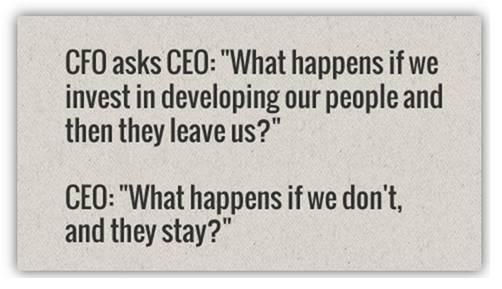It’s easy to think that meeting deadlines, completing projects, and being a team player at your current job are enough to advance your career as a developer.
Regular and formal professional development, however, is essential for developers who want to stay valuable to current employers, competitive in the marketplace, and tuned into the newest tools. For the employer, investing resources into their staff’s professional development can help the company’s bottom line.
“When professional development is done so that both the employer’s needs and developer’s interests are aligned, it can be a win-win,” says SIGnature Recruiting’s Rachel Shen.
“Most of our top clients have instituted some kind of professional development program to improve their employee performance and overall productivity.”
Benefits from Professional Development
Higher-performing Employee:
Through professional development, an employee expands his knowledge base and sharpens problem-solving and logic skills. Interpersonal and communication skills are essential for developers wanting to move up the career ladder so seek the opportunities that forge relationships with others. Also, displaying an ongoing commitment to being better at your profession is an admirable personal quality attractive to employers.
Competitive Advantage for Company:
Keeping talent informed about the latest issues and trends is a sure-fire way for a company to keep its competitive advantage. By becoming proficient in a new IT skill or learning about latest project management tools, an employee helps his company prepare for future issues and industry trends before they become the norm.
Employee Loyalty to Company:
Employees are also more committed and engaged with companies that offer professional development opportunities. Limiting staff turnover keeps productivity humming, and a professional development program attracts ambitious staff.
How to Start?
A professional development individual work plan or company-wide program does not need to be complicated. Some companies simply allocate an amount for staff development that is spent through the year as opportunities come up for staff.
Ideally, both an employee and employer agree that professional development is important and its timing aligns with the company demands. When both see the value in professional development, it can be easier to work together on sharing any costs and accommodating out-of-office time.
Each must understand that proper investment in professional development will require commitment, planning, and time. Often, that means financial investment in the form of course fees, conference registrations, and indirectly, through staff time.
An employee who understands how improving her knowledge base and skill sets can give the company a valuable asset is more likely to get the greenlight for the professional development.
Ready for more? Stay tuned for our next post “Smart Professional Development Choices for Developers” which recommends the best topics and sources for your on-going education.




